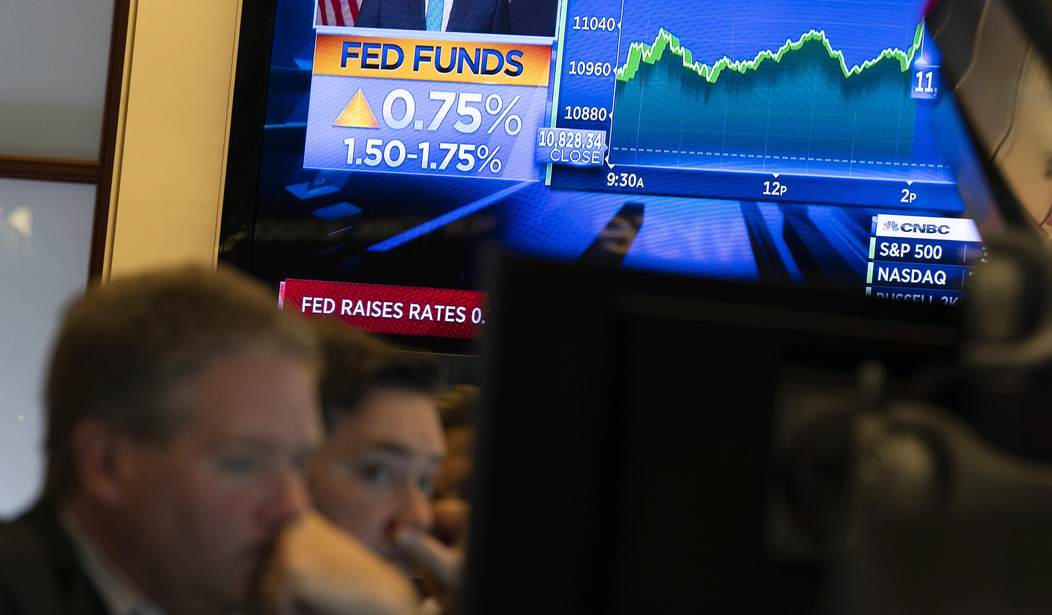
A second bank has been taken over and shut down by the FDIC in less than a week, just days after the collapse of Silicon Valley Bank.
Now, regulators have shut down New York’s Signature Bank, which they have cited as having “systemic risk,” forcing them to get involved. In a press release, the Federal Reserve Board announced the move, also promising that both SVB and Signature depositors would have full access to their money come Monday.
After receiving a recommendation from the boards of the FDIC and the Federal Reserve, and consulting with the President, Secretary Yellen approved actions enabling the FDIC to complete its resolution of Silicon Valley Bank, Santa Clara, California, in a manner that fully protects all depositors. Depositors will have access to all of their money starting Monday, March 13. No losses associated with the resolution of Silicon Valley Bank will be borne by the taxpayer.
We are also announcing a similar systemic risk exception for Signature Bank, New York, New York, which was closed today by its state chartering authority. All depositors of this institution will be made whole. As with the resolution of Silicon Valley Bank, no losses will be borne by the taxpayer.
Shareholders and certain unsecured debtholders will not be protected. Senior management has also been removed. Any losses to the Deposit Insurance Fund to support uninsured depositors will be recovered by a special assessment on banks, as required by law.
Signature Bank, like SVB, had ties to the tech industry – though, instead of focusing on tech start-ups, Signature was almost exclusively a cryptocurrency firm, according to CNBC.
Signature is one of the main banks to the cryptocurrency industry. As of Dec. 31, Signature had $110.4 billion in total assets and $88.6 billion in total deposits, according to a securities filing.
It was also the bank that Democratic politician Barney Frank joined after leaving Congress.
The bank that was just closed, Signature Bank, is the one that Barney Frank joined after retiring from Congress pic.twitter.com/25TNEFn3GK
— Lee Fang (@lhfang) March 12, 2023
The move to shutter the second bank is seen in the financial world as a race to contain the fallout from SVB’s collapse. The Fed is trying to auction the bank’s assets off, accepting bids until Sunday night. There is concern in Washington D.C. that this is the beginning of a bigger financial crisis, one that could rival the Global Financial Crisis from the Bush and early Obama years. The worry from folks like my colleague Streiff is that this is a very big and very slippery slope toward nationalizing the financial markets.
READ RELATED: Democrats are the Party of Death, and Their Lies About Abortion Continue to Prove That
The Fed, in its release, is trying to convince Americans that this is limited to just a depositor bailout and not a greater handout to shareholders and other debtholders, saying “Shareholders and certain unsecured debtholders will not be protected” and that “Senior management has also been removed.”
See the full press release from the Federal Reserve Board below:
Washington, DC — The following statement was released by Secretary of the Treasury Janet L. Yellen, Federal Reserve Board Chair Jerome H. Powell, and FDIC Chairman Martin J. Gruenberg:
Today we are taking decisive actions to protect the U.S. economy by strengthening public confidence in our banking system. This step will ensure that the U.S. banking system continues to perform its vital roles of protecting deposits and providing access to credit to households and businesses in a manner that promotes strong and sustainable economic growth.
After receiving a recommendation from the boards of the FDIC and the Federal Reserve, and consulting with the President, Secretary Yellen approved actions enabling the FDIC to complete its resolution of Silicon Valley Bank, Santa Clara, California, in a manner that fully protects all depositors. Depositors will have access to all of their money starting Monday, March 13. No losses associated with the resolution of Silicon Valley Bank will be borne by the taxpayer.
We are also announcing a similar systemic risk exception for Signature Bank, New York, New York, which was closed today by its state chartering authority. All depositors of this institution will be made whole. As with the resolution of Silicon Valley Bank, no losses will be borne by the taxpayer.
Shareholders and certain unsecured debtholders will not be protected. Senior management has also been removed. Any losses to the Deposit Insurance Fund to support uninsured depositors will be recovered by a special assessment on banks, as required by law.
Finally, the Federal Reserve Board on Sunday announced it will make available additional funding to eligible depository institutions to help assure banks have the ability to meet the needs of all their depositors.
The U.S. banking system remains resilient and on a solid foundation, in large part due to reforms that were made after the financial crisis that ensured better safeguards for the banking industry. Those reforms combined with today’s actions demonstrate our commitment to take the necessary steps to ensure that depositors’ savings remain safe.
Trending on RedState Video
Source:






